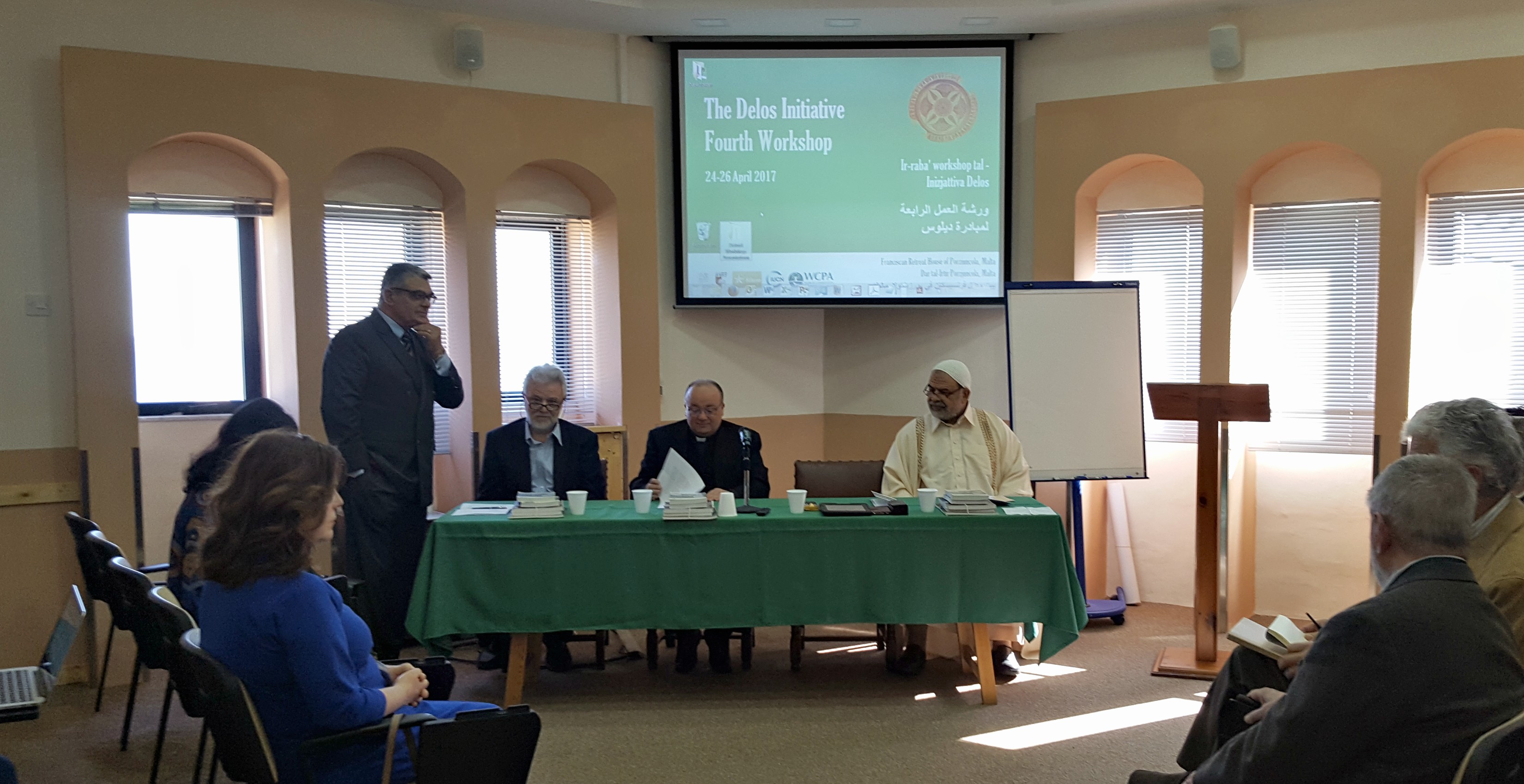-

-
On Monday, 25th April 2017, Archbishop Charles J. Scicluna addressed The Delos Initiative Fourth Workshop, which focused on case studies about sacred natural sites with a primary emphasis on Islam and on those relevant to more than one living religions.
-
Message by Archbishop Charles J. Scicluna
-
Porziuncola Franciscan Retreat House, Baħar iċ-Ċagħaq
25th April 2017
It is a pleasure for me to address this workshop of the Delos Initiative and to welcome you all to Malta.
The theme of this workshop, and indeed of this entire Initiative, is one that is particularly well suited to this venue, a retreat house dedicated to St. Francis of Assisi. St. Francis is an iconic figure in the Christian tradition, admired for his simplicity, compassion, and love of the poor. He is of course also renowned for his love of nature. He held a fundamental belief in the goodness of all creation, finding life-affirming joy in the diversity of life around him. Indeed, he wished nothing more than for humans to glorify God by treating all life with love and respect.
In this day and age, the philosophy and teachings of St Francis take on even greater significance and relevance. We live at a time of incredible human progress. The technologies we have today would have been unimaginable just a few years ago. We can reach further, wider, higher than ever before. Yet our growth and progress have come at a price. The burden of development has been borne disproportionately by two casualties. One is the poor, those on the margins of society, who have been left behind as the gap between rich and poor grows ever wider. The second is the natural world, which is under ever more threat, becoming a mere means to the end of progress. It is perhaps ironic that our two casualties are the two vulnerable groups that St. Francis so cherished.
It is also true, however, that there is a growing wish for and spirit of change. Indeed, it is fitting that we now have His Holiness Pope Francis – a name chosen to pay tribute to the iconic figure of St Francis of Assisi. In his landmark encyclical Laudato si, which takes its name from the Canticle of the Creatures of St Francis, His Holiness calls to mind that the earth, our common home, “is like a sister with whom we share our life and a beautiful mother who opens her arms to embrace us” (n. 1). Inspired by St Francis, the entire encyclical is a prayerful contemplation on the global responsibility to “bring the whole human family together to seek a sustainable and integral development … to come together to take charge of this home, which has been entrusted to us … in union with all creatures, [as] we journey through this land, seeking God” (LS, 13, 244). In short, we, the human family, need to come together to fulfil our role as stewards of creation.
It is our responsibility to protect these important sacred sites from the greed and profit-making of today’s ‘technocratic paradigm’ and its ethos for the benefit of generations yet to be born.
Caring for sacred natural sites, which represent ancient and profound cultural values, is a constitutive element of our ecological responsibilities because these important places are special points of reference for cultural and spiritual identity: for an extended family, a clan, a tribe, a religious faith or entire nations that may root their identity in a specific place in nature. Pope Francis articulated in Laudato si’ the relationship between faith and nature as follows: “The history of our friendship with God is always linked to particular places” (LS 84). Sacred natural sites are just one of many domains where religions or belief systems interact with nature. Most if not all religions have mythology, cosmology, theology and ethics related to earth, nature and land. Past generations have been faithful custodians of these natural sacred sites through their dedicated efforts. Now it is our responsibility to protect these important sacred sites from the greed and profit-making of today’s ‘technocratic paradigm’ and its ethos for the benefit of generations yet to be born.
This is precisely the mission that the International Union for Conservation of Nature (IUCN) strives towards. Through its various branches and commissions, it works tirelessly to safeguard species and ecosystems across the world, ensuring that we pass on this irreplaceable heritage to future generations, fulfilling our duties as stewards. It also seeks, however, to ensure that this natural bounty is used for the benefit of all people, and especially the poor. IUCN has been at the forefront in arguing that a healthy natural support system is critical for countries to be able to overcome poverty and achieve their Sustainable Development Goals – and this has paid dividends. Just recently, the United Nations published a report acknowledging that people have a fundamental human right to a healthy natural world, the first ever such statement.
This Delos Initiative fully reflects this spirit of stewardship. It is truly inspiring too see this group of people, from different countries, faiths, cultures, professions, coming together with a common goal – safeguarding not only natural sites, but also the spiritual and cultural values associated with them. Your work on sacred natural sites is proof of what St. Francis believed – nature brings us closer to God.
I wish you the best of luck with your discussions over the next days and augur that your deliberations are fruitful and contribute to the future management of sacred natural sites across the world.
✠ Charles J. Scicluna
Archbishop of Malta





